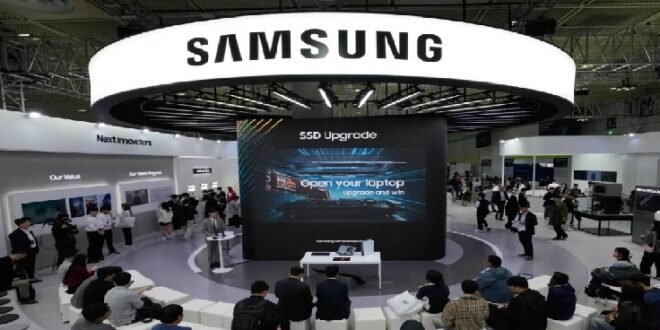23-06-2025
The US Department of Commerce is considering revoking authorizations granted in recent years to global chipmakers Samsung, opens new tab, SK Hynix, opens new tab and TSMC, opens new tab, making it more difficult for them to receive US goods and technology at their plants in China, according to people familiar with the matter.
 The chances of the United States withdrawing the authorizations are unclear but with such a move, it would be harder for foreign chipmakers to operate in China, where they produce semiconductors used in a wide range of industries.
The chances of the United States withdrawing the authorizations are unclear but with such a move, it would be harder for foreign chipmakers to operate in China, where they produce semiconductors used in a wide range of industries.
A White House official said the United States was “just laying the groundwork” in case the truce reached between the two countries fell apart but the official expressed confidence that the trade agreement would go forward and that rare earths would flow from China, as agreed.
“There is currently no intention of deploying this tactic,” the official said. “It’s another tool we want in our toolbox in case either this agreement falls through or any other catalyst throws a wrench in bilateral relations.”
Shares of US chip equipment makers that supply plants in China fell when the Wall Street Journal first reported the news earlier on Friday. KLA Corp, opens new tab dropped 2.4%, Lam Research, opens new tab fell 1.9% and Applied Materials, opens new tab sank 2%. Shares of Micron, a major competitor to Samsung and SK Hynix in the memory chip sector, rose 1.5%.
A TSMC spokesman declined comment. Samsung and Hynix did not immediately respond to requests for comment. Lam Research, KLA and Applied Materials did not immediately respond, either.
In October 2022, after the United States placed sweeping restrictions on US chip-making equipment to China, it gave foreign manufacturers like Samsung and Hynix letters authorizing them to receive goods.
In 2023 and 2024, the companies received what is known as Validated End User status in order to continue the trade.
A company with VEU status is able to receive designated goods from a US company without the supplier obtaining multiple export licenses to ship to them. VEU status enables entities to receive US-controlled products and technologies “more easily, quickly and reliably,” as the Commerce Department website puts it.
 The VEU authorizations come with conditions, a person familiar with the matter said, including prohibitions on certain equipment and reporting requirements.
The VEU authorizations come with conditions, a person familiar with the matter said, including prohibitions on certain equipment and reporting requirements.
“Chipmakers will still be able to operate in China”, a Commerce Department spokesperson said in a statement when asked about the possible revocations. “The new enforcement mechanisms on chips mirror licensing requirements that apply to other semiconductor companies that export to China and ensure the United States has an equal and reciprocal process.”
Industry sources said that if it became more difficult for US semiconductor equipment companies to ship to foreign multinationals, it would only help domestic Chinese competitors.
“It’s a gift,” one said.
However, Interest in European-based digital services has jumped in recent months, data from digital market Intelligence Company Similarweb shows. More people are looking for e-mail, messaging and even search providers outside the United States.
The first months of Trump’s second presidency have shaken some Europeans’ confidence in their long-time ally, after he signaled his country would step back from its role in Europe’s security and then launched a trade war.
“It’s about the concentration of power in US firms,” said Topio’s founder Michael Wirths, as his colleague installed on a customer’s phone a version of the Android operating system without hooks into the Google ecosystem. (Int’l News Desk)
 Pressmediaofindia
Pressmediaofindia




